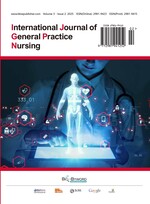Abstract
Background: Acute myocardial infarction (AMI) demands timely and effective intervention to prevent severe complications and improve patient outcomes. However, differences in emergency nursing protocols can affect the success of treatment. Therefore, evaluating the effectiveness of an optimized comprehensive emergency nursing model, which includes advanced assessment methods and individualized care strategies, is crucial for enhancing treatment protocols. Objective: This study aimed to assess the impact of a comprehensive emergency nursing model on patients diagnosed with acute myocardial infarction (AMI) within the cardiology department, focusing on optimizing rescue efficiency and patient outcomes. Methods: This retrospective study analyzed data from 90 AMI patients admitted to the hospital between January and December 2024. The study was conducted within the cardiology department of our hospital. The patients were divided into two groups: an intervention group (n=45) and a control group (n=45). The intervention group received care under the comprehensive, optimized emergency nursing model, while the control group received standard emergency care. Evaluation parameters included rescue time, clinical outcomes, and patient satisfaction with nursing care. Results: No significant differences in baseline characteristics were found between the two groups. However, the intervention group (n=45) demonstrated significantly shorter rescue times compared to the control group (n=45) in all measured parameters, including triage assessment time (7.49 ± 1.29 vs. 12.49 ± 2.18 minutes) and total emergency time (28.37 ± 3.14 vs. 48.64 ± 5.65 minutes), with P-values < 0.001. Additionally, the intervention group showed significantly lower rates of clinical complications, including heart failure (4.44% vs. 17.78%) and recurrent myocardial infarction (2.22% vs. 17.78%), and higher patient satisfaction across all parameters, with P-values < 0.001. These findings demonstrate the effectiveness of the comprehensive emergency nursing model in enhancing AMI care. Conclusion: The comprehensive emergency nursing model significantly improved rescue efficiency, reduced complications, and increased patient satisfaction in AMI care, demonstrating its clinical effectiveness.
References
Zhang Z, Gu D, Li S, 2024, The Improved Emergency Nursing Procedure and Human-oriented Nursing Care Can Significantly Reduce Hard Feelings of Patients with Acute Myocardial Infarction. Alternative Therapies in Health and Medicine, 32(2):14–18.
Wang L, Hao X, Zou W, et al., 2024, Optimizing the Effects of a Comprehensive Emergency Nursing Model on Rescued Patients with Acute Myocardial Infarction in the Cardiology Department. Alternative Therapies in Health and Medicine, 11(1): 26–31.
Earl C, Patterson P, Seaman EC, 2024, Acute Coronary Syndrome Pathway Use and Differences in Intervention Times in Rural Hospitals: A Retrospective Cohort Analysis. Collegian, 31(2): 128–135.
Hui Z, Liu X, 2024, Effect of Interdisciplinary Collaboration in Emergency Nursing Using the SWOT Model on Acute Myocardial Infarction. Alternative Therapies in Health and Medicine, 32(2): 22–27.
Frederic L, Tomislav P, Brice M, et al., 2024, Evolution of REperfusion Strategies and Impact on Mortality in Old and Very OLD STEMI Patients. The RESOVOLD-e-MUST Study. Age and Ageing, 51(1): 37–42.
Wook BL, Sung YC, Oh SH, et al., 2023, Echocardiographic Features of Myocardial Rupture after Acute Myocardial Infarction on Emergency Physician Echocardiography. Clinical and Experimental Emergency Medicine, 42(1): 25–29.
Healthcare OJE, 2023, Investigation on the Effect of Graded Emergency Nursing Group under the Assistance of Multidisciplinary First Aid Knowledge Internet-Based Approach on the First Aid of Acute Myocardial Infarction. Journal of Healthcare Engineering, 2023, 9803083.
Juan C, Xu WX, Xun C, et al., 2023, Nursing Model Based on Snyder’s Hope Theory in Emergency Care of Patients with Acute Myocardial Infarction. American Journal of Translational Research, 15(7): 4770–4778.
Zhang YC, Huang LL, Zhou XH, 2022, Influence of Prehospital Emergency Care on Rescue Success Rate and Complication Rate of Senile Patients with Acute Myocardial Infarction. Computational and Mathematical Methods in Medicine, 2022, 7557288.
Arslan G, Tokem Y, Yilmaz UD, 2022, Emergency Care Management in an Acute Myocardial Infarction Patient: Simulation Scenario Design Example in Nursing. Turkish Journal of Cardiovascular Nursing, 13(31): 110–119.
Wu CH, Wu L, Jin P, 2022, Effect of SWOT Analysis Combined with the Medical and Nursing Integration Emergency Nursing Process on Emergency Treatment Efficiency and Prognosis of Patients with Acute Myocardial Infarction. Emergency Medicine International, 2022, 7106617.
Song LL, Lu H, Ru H, et al., 2022, Investigation on the Effect of Graded Emergency Nursing Group under the Assistance of Multidisciplinary First Aid Knowledge Internet-Based Approach on the First Aid of Acute Myocardial Infarction. Journal of Healthcare Engineering, 2022, 8469930.
Takeshi Y, Toshiaki O, Nobuko Y, et al., 2021, Hospital Performance in a Large Urban Acute Myocardial Infarction Emergency Care System: Tokyo Cardiovascular Care Unit Network. Journal of Cardiology, 78(3): 177–182.
Zhang QQ, Yu YL, 2021, Effects of Graded Emergency Nursing on Resuscitation Outcomes, Prognosis, and Nursing Satisfaction in Patients with Acute Myocardial Infarction. American Journal of Translational Research, 13(9): 10586–10592.
Wang S, Jiang YW, Wang MZ, et al., 2020, Application Effect and Satisfaction Analysis of Personalized Nursing in Pre-hospital Emergency Nursing of Patients with Acute Myocardial Infarction. Panminerva Medica, 17(2): 14–23.
Marcolino MS, Ribeiro AL, 2020, Focusing on Prehospital Care to Improve ST Elevation Myocardial Infarction Care. Heart (British Cardiac Society), 106(5): 323–324.
Sid EV, 2020, Emergency Medical Care for Patients with Acute Myocardial Infarction at the Prehospital Stage. Kardiologija v Belarusi, 12(4): 454–462.
Sato K, Takahashi J, Hao K, et al., 2018, P4618Temporal Trends in Emergency Care and Outcomes of Geriatric Patients with Acute Myocardial Infarction in Japan — Report from the Miyagi AMI Registry. European Heart Journal, 2018(39): 21.
Masuda J, Kishi M, Kumagai N, et al., 2018, Rural-Urban Disparity in Emergency Care for Acute Myocardial Infarction in Japan. Circulation Journal, 82(6): 1666–1674.
Than MP, Pickering JW, Sandoval Y, et al., Machine Learning to Predict the Likelihood of Acute Myocardial Infarction. Circulation, 140(11): 899–909.
